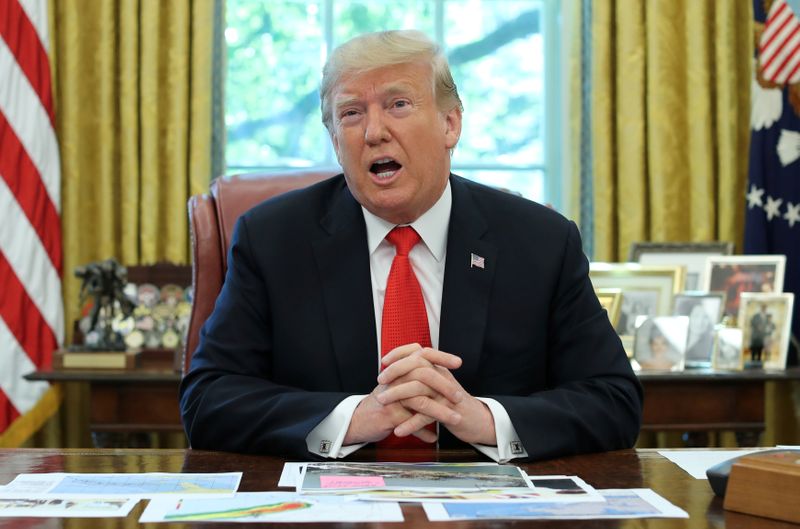By Karen Freifeld and Mike Stone
(Reuters) - U.S. government officials are still considering ways to further curb sales to China's Huawei Technologies [HWT.UL], despite President Donald Trump's tweets and comments last week in support of sales to China, according to people familiar with the matter.
An interagency meeting was held on Thursday to discuss national security and China export issues, including proposals to restrict sales of chips to Huawei, the world's second-largest smartphone maker, and a plan to block the sale of jet engines for China's new passenger airplane.
While blocking General Electric Co (N:GE) from supplying jet engines appeared to be off the table after Trump opposed efforts to stop their sale, sources told Reuters on Monday new restrictions aimed at cutting Huawei off further from its suppliers were still under discussion.
Trump told reporters last week he wanted U.S. companies “to be allowed to do business.”
"I mean, things are put on my desk that have nothing to do with national security, including with chipmakers and various others,” he said.
He said he had been "very tough" on Huawei, but did not provide further details, and added that national security concerns should not be used as an excuse to make it difficult for foreign countries to buy U.S. products.
His comments contrasted with the sharp restrictions his administration has placed on U.S. companies trading with Huawei over national security concerns and foreign policy interests.
The United States alleges the Chinese government could use Huawei equipment to spy, an accusation Huawei has rejected.
DIVISIONS
Policymakers have been sharply divided over Huawei and China ahead of a possible cabinet-level meeting, which had been scheduled for Feb. 28 but has now been pushed to a later date. Some officials have favored a tougher line while others are more focused on trading with the world’s second largest economy.
Officials from various government agencies are trying to come to a consensus ahead of the cabinet meeting, one person familiar with the matter said.
In their meeting on Thursday, officials discussed possible changes to what is known as the de minimis rule, which dictates how much U.S. content can be in a foreign-made product before the United States has authority to regulate its sale, the sources said.
Under current regulations, the United States can require a license or block the export of many high-tech products shipped to China from other countries if U.S.-made components make up more than 25% of the value.
But the U.S. Department of Commerce drafted a rule that would lower the threshold only on exports to Huawei to 10% and expand the purview to include non-technical goods like consumer electronics including non-sensitive chips.
Officials discussed lowering that threshold at Thursday's meeting, a second source said.
The government agencies also have been considering changing the Foreign Direct Product Rule, which subjects foreign-made goods based on U.S. technology or software to U.S. oversight.
One proposed change would force foreign companies that use U.S. chipmaking equipment to seek licenses before supplying Huawei.
Huawei was placed on a U.S. trade blacklist last May that allows the United States to restrict the export of American-made goods to companies believed to be involved in activities contrary to the U.S. national security or foreign policy interests.
But many foreign supply chains remained beyond the reach of U.S. authorities, frustrating China hawks and spurring the proposals to expand controls.

Reuters exclusively reported in November that the United States was considering altering the two rules to expand its power to restrict the foreign shipment of products with U.S. technology to Huawei.